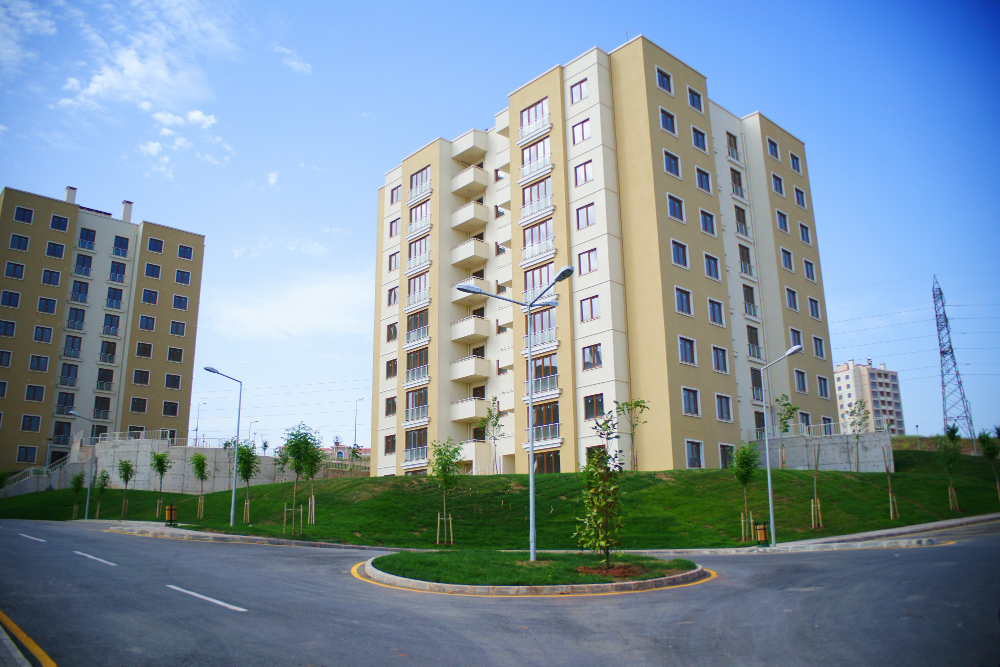Dubai, a city known for its luxury and modern lifestyle, offers numerous options for those looking to settle down. Whether it’s high-rise apartments or waterfront villas, the city presents a variety of choices catering to diverse preferences. For anyone seeking an upscale, community-focused environment, areas like Dubai Marina stand out as some of the best options to live in.
Living in Dubai means access to world-class amenities and a vibrant social scene. Neighborhoods popular among expats provide great opportunities to meet new people and enjoy diverse cultures. The abundance of recreation spaces ensures that residents can enjoy both active and relaxed lifestyles.
Understanding the different areas and what they offer is essential. It’s important to consider factors such as cost, convenience, and lifestyle needs when choosing where to live in Dubai. Popular districts range from family-friendly communities to bustling urban centers, each with its own character and charm.
Key Takeaways
- Dubai offers diverse residential options with luxury amenities.
- Neighborhoods vary in cost, convenience, and lifestyle offerings.
- Choosing the right area is crucial for a comfortable living experience.

Dubai’s Residential Landscape
Dubai offers diverse living options with impressive urban developments and a choice between coastal and inland lifestyles. Residents can enjoy the blend of modern luxury and comfort suited to different preferences and needs.
Urban Development and Zones
Dubai is a city known for its rapid and innovative urban development. Areas like Downtown Dubai feature iconic infrastructures, such as the Burj Khalifa and the Dubai Mall, perfect for those who thrive in vibrant city life. This zone is characterized by high-rise buildings, luxurious shopping venues, and bustling nightlife.
The city also has thoughtfully planned communities like Jumeirah Lake Towers (JLT), which offers a mix of residential and commercial spaces. These areas often come with amenities such as swimming pools and gyms, catering to various lifestyles and budgets.
Comparing Coastal and Inland Living
Living by the coast offers stunning views and access to beaches. Areas like Jumeirah Beach Residence provide residents with a scenic environment and proximity to waterfront activities. This is ideal for those who enjoy outdoor leisure and a relaxed atmosphere.
Inland communities, like Arabian Ranches and Dubai Silicon Oasis, offer a quieter lifestyle away from the busy city center. These places tend to have spacious homes with gardens, making them appealing for families. Opting for either location depends on one’s preference for either a vibrant beachside setting or a peaceful inland community.
Factors to Consider When Choosing a Location
When selecting a place to live in Dubai, several elements impact comfort and convenience. These include distance from work or schools, healthcare availability, and effective transportation networks.
Proximity to Work and Schools
Choosing a home near the workplace or school can significantly affect daily life in Dubai. With busy roads, especially during rush hours from 7 to 9 a.m. and 5 to 7 p.m., living near these locations saves many residents from stress.
Families may prioritize neighborhoods with good schools. This decision is crucial, as a short commute can create a better balance between work and family time. Areas with major business hubs or reputable schools are often in high demand.
Access to Healthcare Facilities
Living near healthcare facilities ensures easy access to medical services when needed. Dubai has numerous hospitals and clinics, but their distribution varies across the city.
Residents value quick access to quality healthcare. It’s important to check which areas have nearby hospitals or specialist clinics. This is particularly vital for families, seniors, and people with specific health needs. Proximity to healthcare services can offer peace of mind and prompt care.
Public Transportation and Connectivity
Dubai offers a modern public transportation system, including buses, the metro, and taxis. Choosing a location with strong transport links can reduce reliance on personal vehicles and ease commuting challenges.
Areas with good connectivity often have metro stations or bus stops nearby. These provide efficient routes to key districts and attractions. Accessible public transport is beneficial for those who frequently travel within the city or seek flexibility in daily commutes.
Popular Residential Districts
Dubai offers a mix of modern city living and serene coastal views. Key areas like Downtown Dubai, Dubai Marina, and Palm Jumeirah provide unique lifestyles and amenities.
Downtown Dubai
Downtown Dubai is famous for its iconic landmarks, including the Burj Khalifa and Dubai Mall. This area is buzzing with activity, drawing in both tourists and residents who enjoy a vibrant urban setting.
Residents have a wide choice of luxurious high-rise apartments. The area features extensive shopping, dining, and entertainment options. From fine dining restaurants to casual cafes, there is something for everyone. The central location makes it easy to access other parts of the city, thanks to well-connected roads and public transport.
Overall, Downtown Dubai is ideal for those who crave an energetic, city-centered lifestyle.
Dubai Marina
Dubai Marina stands out with its scenic waterfront and towering skyscrapers. Known for its modern apartments, this area offers stunning views of the marina and the city skyline.
The area features a lively promenade with a variety of restaurants, shops, and cafes. Water activities, such as boating and jet-skiing, add to the appeal. Residents enjoy easy access to beaches and parks, perfect for outdoor relaxation. The public transport system, including a metro station, ensures easy commuting.
Families and young professionals alike find Dubai Marina attractive for its lifestyle mix and amenities.
Palm Jumeirah
Palm Jumeirah is an architectural wonder shaped like a palm tree. Its luxurious villas and upscale apartments attract those seeking exclusivity and comfort.
This district boasts some of the best private beaches, luxury resorts, and high-end dining experiences in Dubai. Shopping is also convenient, with a variety of boutique and mainstream options. The Monorail and road networks provide adequate connectivity to the rest of the city.
Palm Jumeirah is perfect for those who enjoy a premium lifestyle in a unique setting. Its blend of tranquility and luxury remains unmatched.

Housing Types and Architectural Styles
Dubai offers a wide range of housing types for many lifestyles. From sleek high-rise apartments to luxurious villas and charming traditional houses, each option provides unique architectural features and amenities.
Apartments and High-Rises
Dubai is famous for its skyscrapers, including the iconic Burj Khalifa. High-rise living offers stunning cityscape views and modern amenities like pools, gyms, and concierge services. These apartments are often found in bustling areas like Downtown Dubai, drawing those who enjoy an urban lifestyle.
In the Dubai Marina, high-rise apartments are popular for their luxurious waterfront views. The architectural styles often include floor-to-ceiling windows and sleek, contemporary designs. These homes attract professionals and families seeking convenience and luxury.
Villas and Townhouses
Villas and townhouses cater to those seeking more space and privacy. Communities like Jumeirah Golf Estates offer spacious homes with elegant designs inspired by Mediterranean architecture. Often, these homes include private gardens, pools, and multiple bedrooms, ideal for family living.
In areas like Arabian Ranches and Palm Jumeirah, villas can be expansive and luxurious. These homes often feature high ceilings, large living areas, and direct beach access, creating a serene lifestyle. Ideal for families, villas offer a blend of modern comforts and spacious outdoor areas.
Traditional Houses and Heritage Sites
Dubai’s traditional houses are located primarily in heritage areas like Al Fahidi Historical Neighborhood. These homes showcase wind towers, an ancient form of natural air conditioning. The architecture features courtyards, arches, and wooden lattice work, reflecting Islamic influences.
Heritage sites provide a glimpse into Dubai’s past, offering a stark contrast to its modern skyline. These areas preserve the cultural aspects of the city and attract those interested in history and culture. Living in such homes can be a unique experience, combining history with the comforts of modern renovations.
Amenities and Lifestyle
Dubai offers a range of amenities and a vibrant lifestyle for its residents. From extensive shopping options to beautiful parks and cultural venues, the city has something for everyone. Each area provides unique experiences that cater to various interests and preferences.
Shopping Centers and Retail Options
Dubai is renowned for its shopping experiences, boasting numerous centers that cater to a diverse clientele. The Dubai Mall, one of the largest shopping centers globally, offers a wide array of luxury and everyday brands. Residents and tourists can find everything from high-end fashion to electronics here.
Mall of the Emirates is another prominent spot, famous for housing the indoor ski resort, Ski Dubai. This mall provides not only shopping but also unique leisure options. Many residential areas in Dubai are strategically located near these shopping hubs, offering convenience and a variety of choices for residents. Smaller retail options are scattered throughout the city, ensuring all needs are met within a short distance.
Parks, Beaches, and Recreational Areas
Dubai is home to numerous parks and beaches that provide natural beauty and recreational activities. Jumeirah Beach is a favorite among residents, offering pristine sands and facilities for water sports. It’s a great place for family outings or relaxation by the sea.
For those who enjoy greenery, Safa Park and Zabeel Park are popular urban parks with walking trails, picnic areas, and sports facilities. These parks provide a lush escape from the bustling city life and cater to families and fitness enthusiasts alike. Additionally, many residential neighborhoods include private parks and recreational spaces, enhancing the quality of life for those residing there.
Cultural and Entertainment Venues
Dubai hosts a variety of cultural and entertainment venues that enrich the city’s vibrant lifestyle. The Dubai Opera is an iconic venue for music, theater, and dance performances, offering world-class shows throughout the year. This adds to the city’s growing reputation as a cultural hub.
The Dubai Museum provides insights into the city’s rich history, while Alserkal Avenue is a key destination for contemporary art lovers, featuring galleries and creative spaces. Residents also have access to multiplex cinemas, various performance spaces, and live music venues, ensuring a broad spectrum of entertainment is always available.
Cost of Living
Living in Dubai can vary significantly based on lifestyle choices. Costs include housing, utilities, and daily expenses. Each of these can impact the overall budget of living in this vibrant city.
Rent and Real Estate Prices
Housing costs in Dubai depend on the area and property type. Expats often find rent more affordable compared to cities like New York. For example, renting in Dubai is 51.4% lower than in New York.
Options range from shared accommodations priced from 300–800 AED to villas costing 3,000–6,000 AED monthly. Prices can differ based on proximity to the city center and surrounding amenities.
Utilities and Maintenance Expenses
Utilities such as water, electricity, and gas add to monthly expenses. For a single person, utilities might total around 1,000 AED monthly, impacting their budget. The cost can be higher in larger living spaces, reflecting the increase in usage.
Maintenance fees also affect homeowners or those renting in serviced apartments. These costs cover building upkeep, security, and communal spaces. Ensure you understand these when choosing a living option.
Living Expenses and Budgeting
Day-to-day living expenses in Dubai can be substantial. A single person might spend around 3,700 AED on food, transport, and other expenses, excluding rent.
Food costs vary based on dining choices. While cooking at home is economical, eating out can quickly add up. School fees, healthcare, and leisure activities can also impact a family’s budget, with a comfortable life for a family costing around 35,000 AED monthly.
Budgeting is crucial for managing these expenses effectively, ensuring a balanced and enjoyable lifestyle.
Investing in Dubai’s Property Market
Navigating Dubai’s property market involves understanding the difference between freehold and leasehold properties, and the legal framework for foreign investors. Each of these elements plays a crucial role in making informed investment decisions.
Freehold vs Leasehold Properties
In Dubai, property buyers can choose between freehold and leasehold properties. Freehold properties allow investors to own the property outright and use it as they wish. In designated areas, both locals and foreigners have the right to buy and sell freehold properties. Popular freehold areas include Dubai Marina and Downtown Dubai, with high potential for rental yields and capital appreciation.
On the other hand, leasehold properties involve ownership for a fixed term, often 10, 30, or 99 years. The land remains owned by the original landowner. Leasehold properties tend to be more affordable than freehold but might come with restrictions on property modifications. Understanding these options helps investors align their property choices with their financial goals.
Legal Framework for Foreign Investors
Foreign investors in Dubai face specific legal requirements when purchasing property. Dubai allows foreign ownership in defined freehold areas, which include areas like Palm Jumeirah and Jumeirah Lakes Towers. A critical step involves securing a property registration with the Dubai Land Department.
The purchase process involves several legal documents such as the Memorandum of Understanding (MoU) between the buyer and seller. Additionally, acquiring an NOC (No Objection Certificate) from the developer is often necessary before completing a transfer of ownership. Dubai’s real estate laws are designed to safeguard investor rights while ensuring a transparent and straightforward buying process.
Safety and Security Measures
Dubai is known for its strict safety laws and low crime rates, making it a secure place for residents and visitors. Local authorities implement various initiatives to ensure community well-being and security.
Law Enforcement and Crime Rates
Dubai’s law enforcement agencies are efficient and well-organized, contributing to the city’s low crime rates. The police employ advanced technology, including surveillance systems and predictive policing methods, to enhance security. Crime rates in Dubai are notably low, with serious crimes being a rarity. This sense of safety is backed by various global reports placing Dubai among the safest cities globally. Rules are enforced strictly, and there’s a strong focus on adhering to local laws, contributing to a safe living environment.
Community Watch and Safety Initiatives
Community engagement plays a crucial role in maintaining safety in Dubai. The city promotes programs that encourage residents to participate in neighborhood watch activities. These initiatives foster community spirit and empower residents to look out for one another. Local authorities organize safety workshops and provide resources to educate residents about security practices. These collective efforts enhance trust among community members and strengthen safety networks. Programs like these are vital in upholding Dubai’s reputation as a secure place to live.

